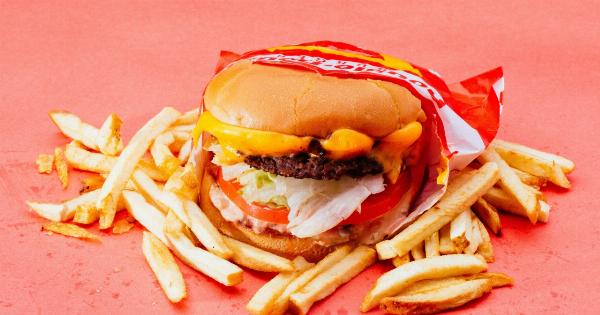As we grow older, it’s natural for our bodies to experience physical changes.
However, did you know that your food choices can greatly affect how quickly you age? Studies have shown that unhealthy eating habits can accelerate the aging process, leading to a variety of health issues. In this article, we’ll discuss some of the most common unhealthy eating habits that accelerate aging.
Sugar Consumption
Consuming large amounts of sugar can damage collagen and elastin proteins in your skin, making it more prone to wrinkles and overall aging.
Sugar can also cause inflammation, increasing the likelihood of chronic diseases such as heart disease and diabetes. Additionally, sugar can disrupt hormonal balances, leading to increased insulin resistance and weight gain.
Eating Processed Foods
Processed foods often lack crucial nutrients and are high in sugar, unhealthy fats, and sodium. The excess amount of salt in these foods can lead to high blood pressure and inflammation within the body, increasing the risk of chronic diseases.
Moreover, processed foods often contain high fructose corn syrup, which can lead to liver damage, insulin resistance, and increased body fat.
Not Drinking Enough Water
Dehydrationcauses your skin to lose elasticity and become dull due to a lack of moisture. Drinking enough water can help you maintain a healthier and younger-looking appearance and keep your skin hydrated.
Additionally, water is essential for the proper functioning of the body’s internal organs and helps remove toxins from the body.
Poor Fats Selection
Eating unhealthy fats, such as trans fats, can increase the levels of harmful cholesterol in your body, leading to heart disease and inflammation.
Moreover, consuming too many saturated fats (found in red meat and dairy products) can increase the risk of stroke and heart disease. A healthier alternative is to consume monounsaturated and polyunsaturated fats (found in nuts, seeds, fish, and olive oil), which provide benefits such as reducing inflammation and promoting healthy cholesterol levels.
Not Eating Enough Vegetables
Vegetables are rich in fiber, antioxidants, vitamins, and minerals that contribute to good health and a youthful appearance.
Adequate vegetable intake helps protect against chronic diseases and cancer while boosting the immune system, helping to fight disease-causing microbes. It’s essential to include a diverse range of colorful veggies in your diet to get the full range of health benefits.
Overeating
Overeating can lead to obesity, which is a risk factor for numerous diseases, including type 2 diabetes, stroke, and heart disease. Overeating can also lead to oxidative damage, inflammation, and cellular aging, which can make you age more quickly.
Moreover, overeating foods high in calories, sugar, and unhealthy fats can lead to a range of diet-related symptoms, such as bloating, heartburn, and acid reflux, which can have a long-term impact on your overall health.
Excessive Alcohol Consumption
Excessive alcohol consumption can lead to a range of negative health effects, such as liver damage, heart disease, and cognitive decline.
Alcohol interferes with the body’s natural hormonal balance and can lead to dehydration and increased inflammation, making you look older. Long-term alcohol abuse can cause damage to various organs in the body, speeding up the aging process.
Eating Too Much Junk Food
Junk food has minimal nutritional value and often contains high levels of sugar, fat, and salt.
Eating too much fast food and other types of junk food can lead to insulin resistance, inflammation, and weight gain, increasing the risk of chronic diseases. Additionally, eating too much junk food has been linked to poor mental health, including depression and anxiety, further impacting overall health and well-being.
Not Consuming Enough Protein
Protein is essential for healthy muscles, skin, and hair. A low-protein diet can lead to loss of muscle mass, dull and dry skin, and brittle nails and hair.
Moreover, insufficient protein consumption can weaken the bones and lead to osteoporosis, a disorder characterized by weak and brittle bones, further accelerating the aging process. A diet rich in protein sources such as lean meat, fish, eggs, and legumes can help maintain muscle mass and optimize overall health.
Not Eating Breakfast
Skipping breakfast puts the body in a state of stress, leading to the release of cortisol, a hormone associated with aging. Breakfast is essential to kickstart the metabolism and provide the body with essential nutrients needed for the day.
Skipping breakfast could lead to overeating later in the day, increasing the risk of obesity and other related health issues.
Conclusion
Unhealthy eating habits not only impact physical health but can also accelerate the aging process.
Consuming excessive amounts of sugar, processed foods, and unhealthy fats, overeating, and inadequate water intake can lead to inflammation, oxidative damage, and cellular aging.
To maintain a youthful and healthy appearance, it’s essential to incorporate a balanced diet rich in nutrients from a variety of sources, including vegetables, lean protein, and healthy fats, and avoiding excessive alcohol consumption and fast foods.































